DCB in PCI: Adjunctive Therapy or Standard of Care?
Published: 14 February 2022
-
Views:
 46314
46314
-
Likes:
 7
7
-
Views:
 46314
46314
-
Likes:
 7
7
-
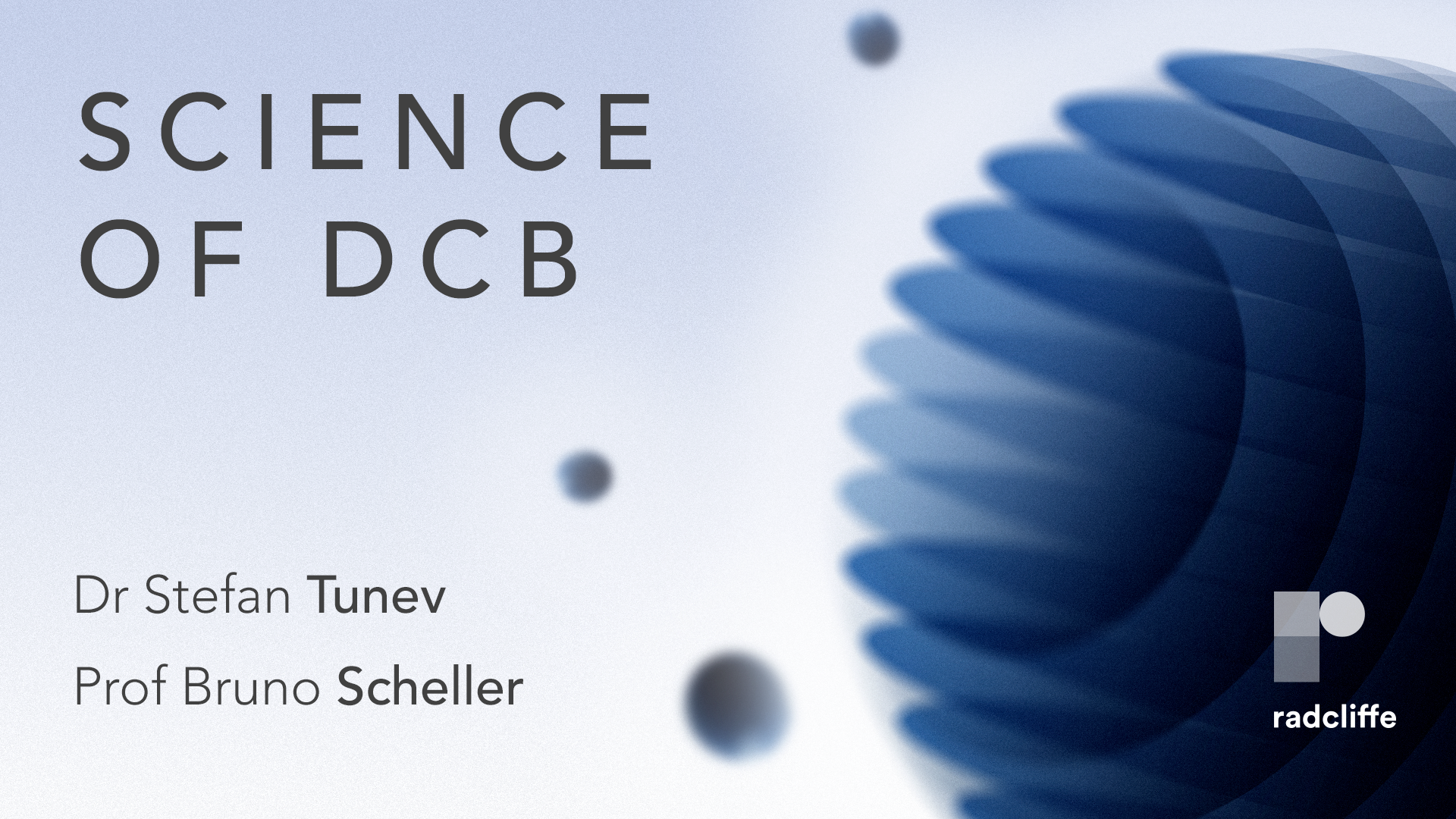 Up Next
Up Next -
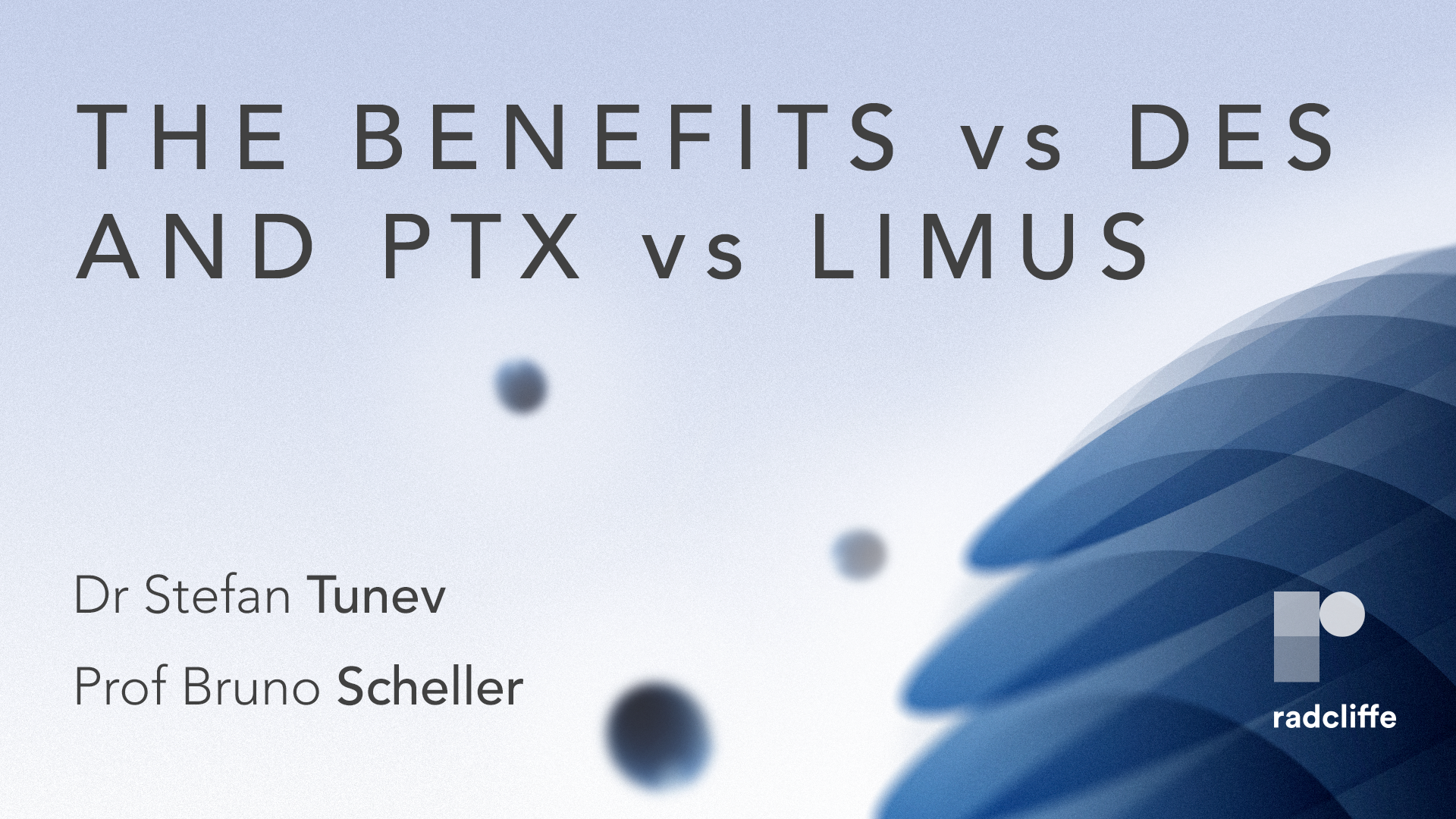 15m 5sPart 1 | Session 2 Episode 2: The benefits vs DES and PTX vs Limus
15m 5sPart 1 | Session 2 Episode 2: The benefits vs DES and PTX vs Limus
-
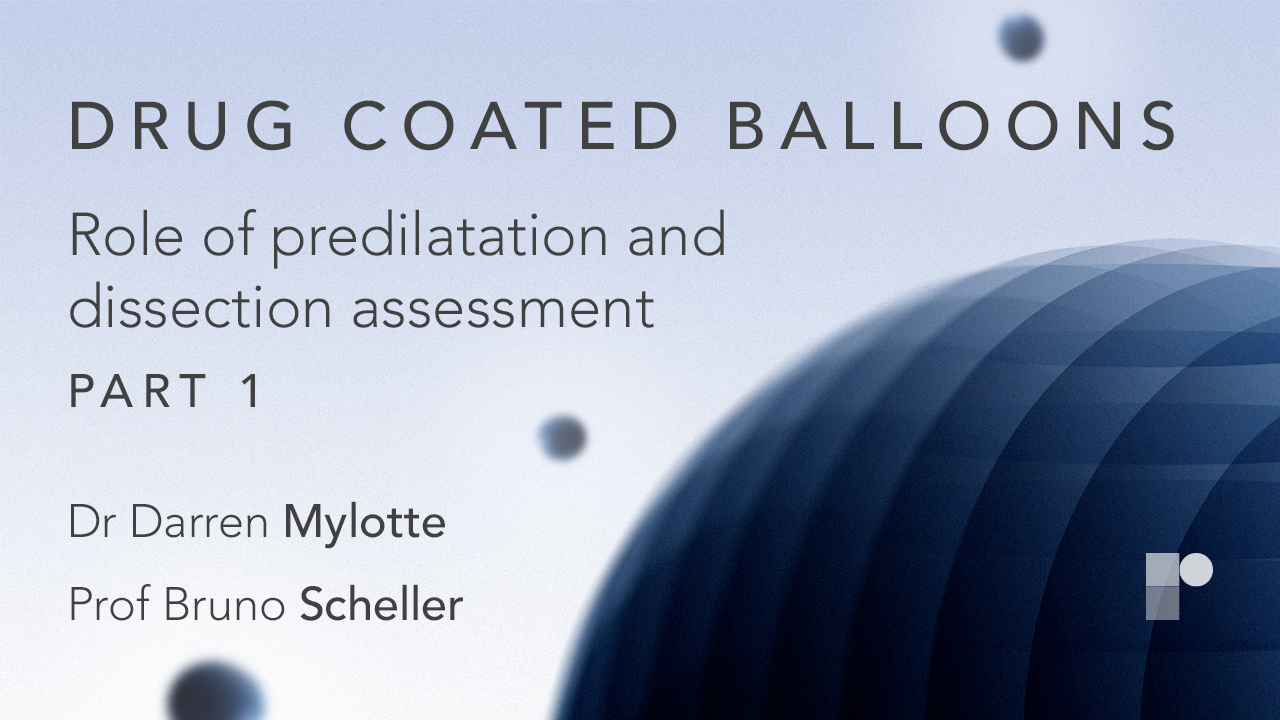 13m 13sPart 2 | Session 1 Episode 3: DCB: Role of Predilatation and dissection assessment
13m 13sPart 2 | Session 1 Episode 3: DCB: Role of Predilatation and dissection assessment -
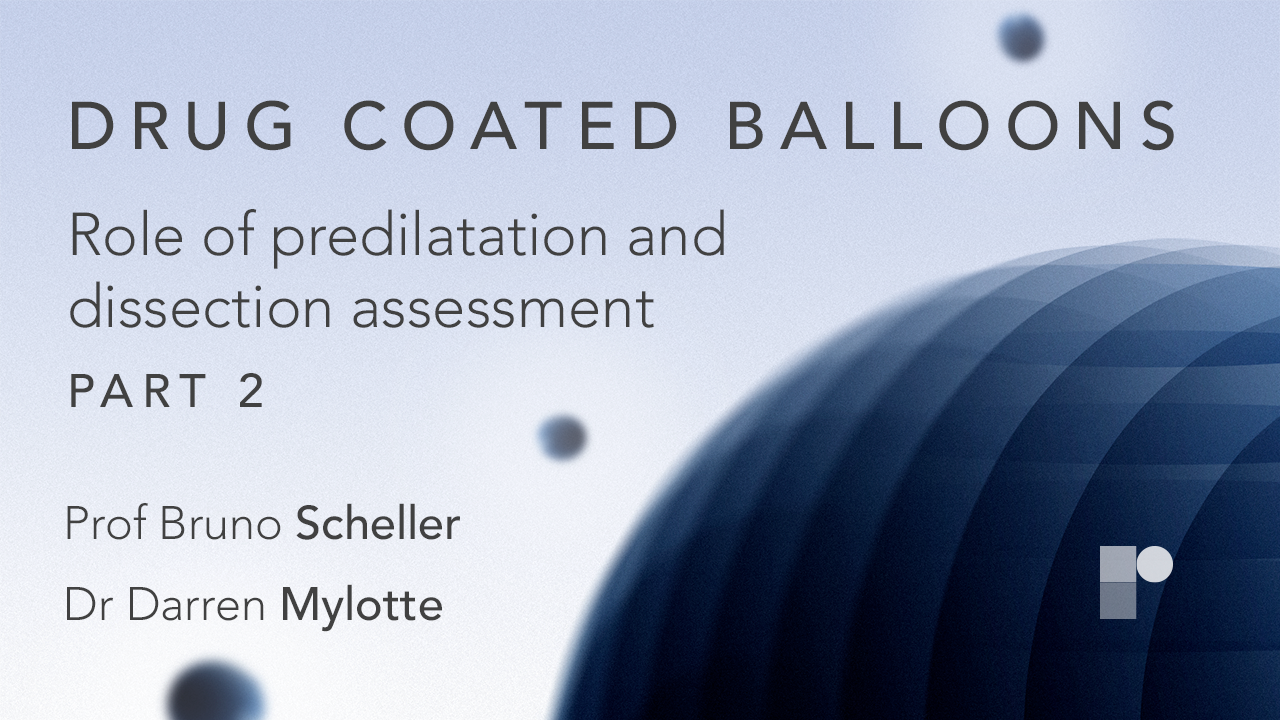 10m 14sPart 2 | Session 2 Episode 4: DCB: Acute and long-term results after DCB-alone PCI
10m 14sPart 2 | Session 2 Episode 4: DCB: Acute and long-term results after DCB-alone PCI -
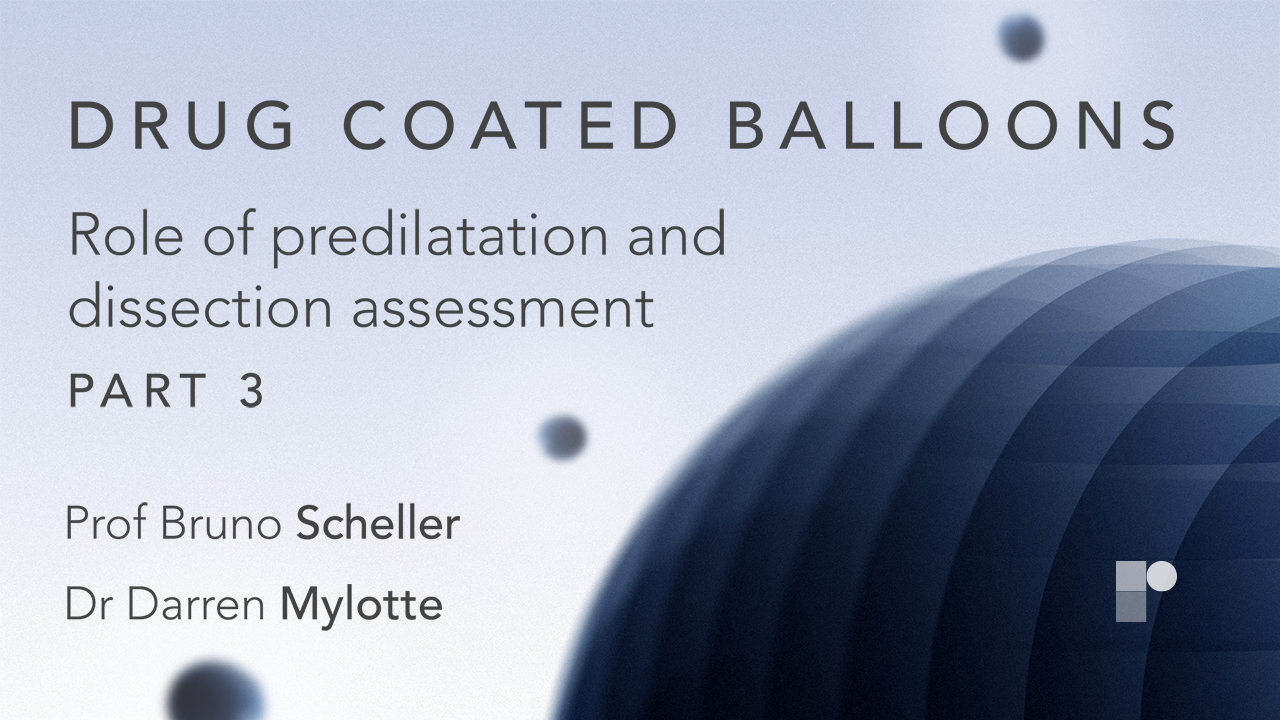 8m 50sPart 2 | Session 3 Episode 5: Risk of abrupt closure and use of adjunctive technologies
8m 50sPart 2 | Session 3 Episode 5: Risk of abrupt closure and use of adjunctive technologies
-
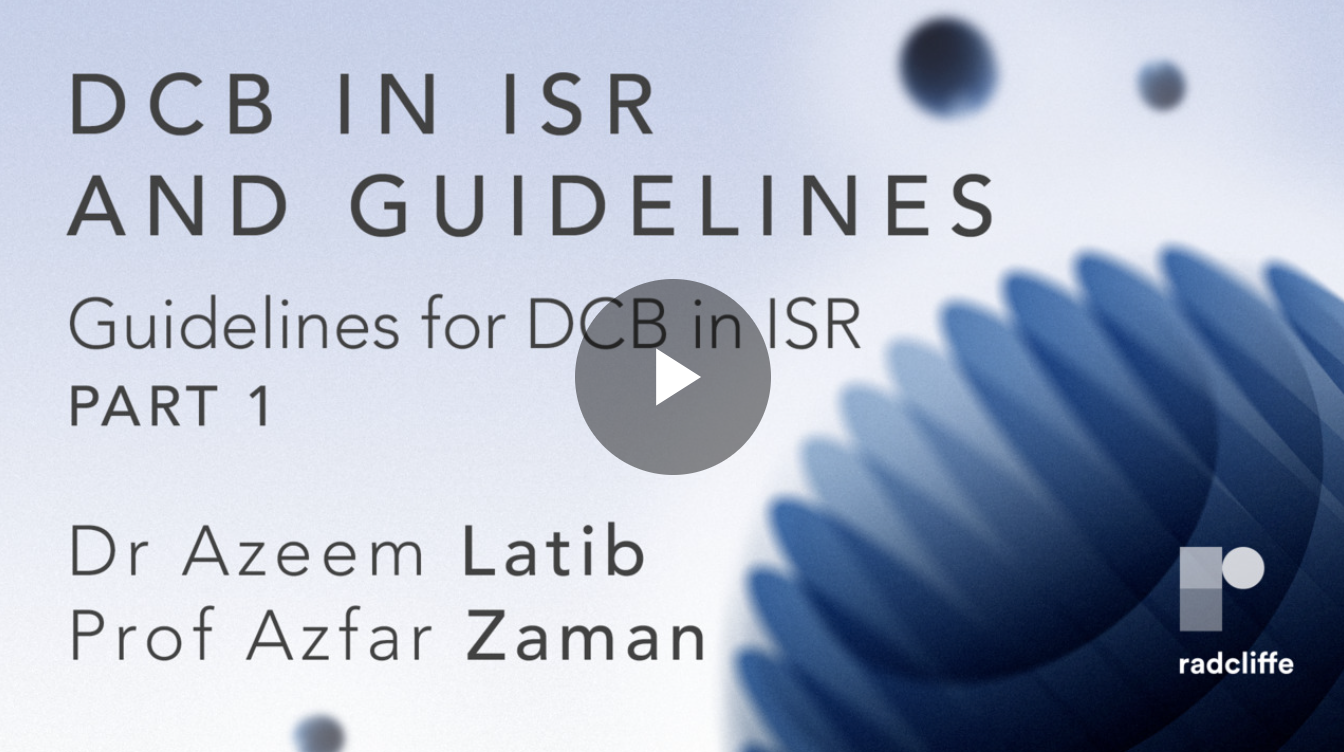 4m 50sPart 3 | Session 1 Episode 6: DCB in ISR and Guidelines
4m 50sPart 3 | Session 1 Episode 6: DCB in ISR and Guidelines -
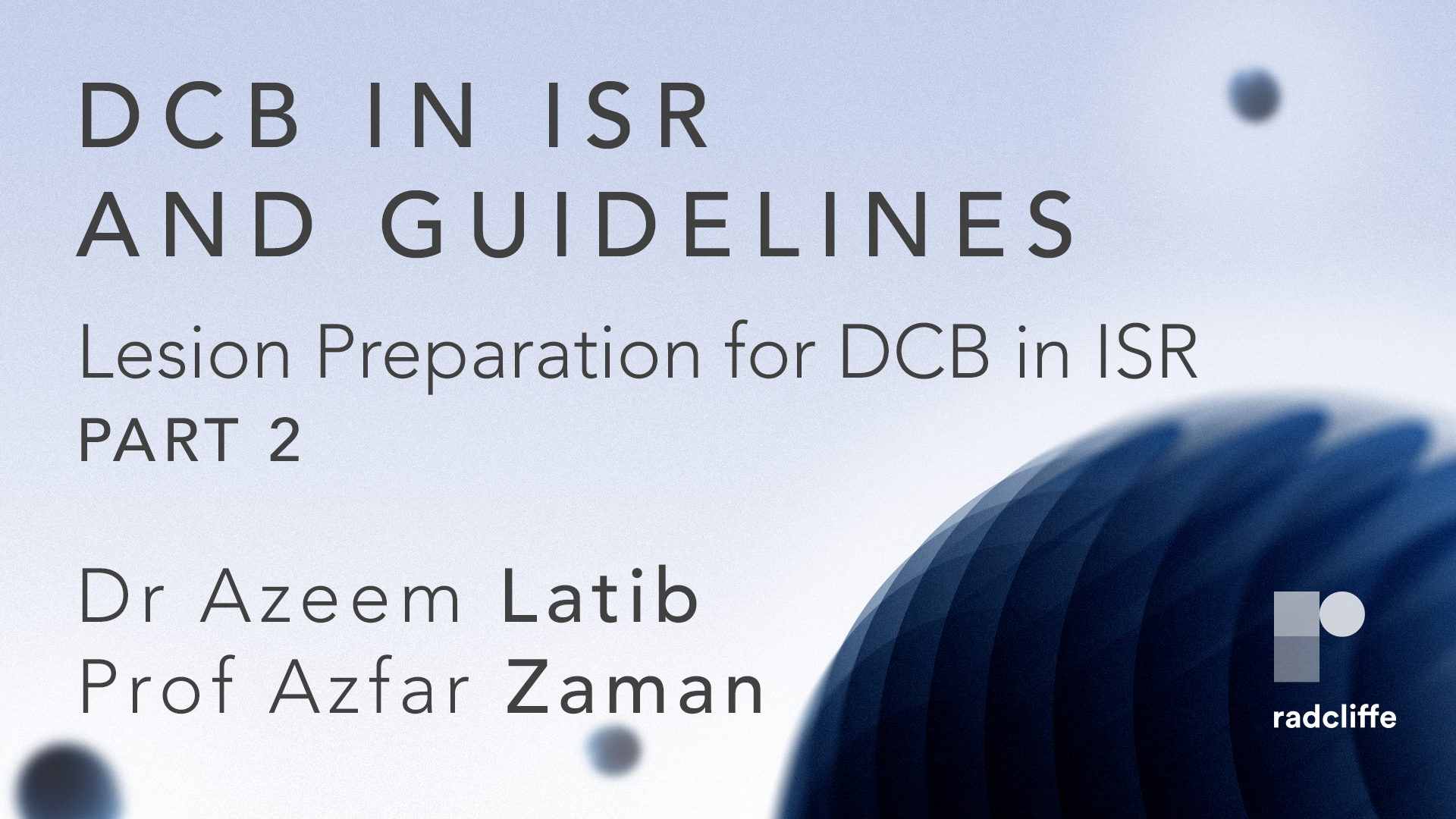 9m 32sPart 3 | Session 2 Episode 7: Requirements for success with DCB and vessel preparation
9m 32sPart 3 | Session 2 Episode 7: Requirements for success with DCB and vessel preparation
-
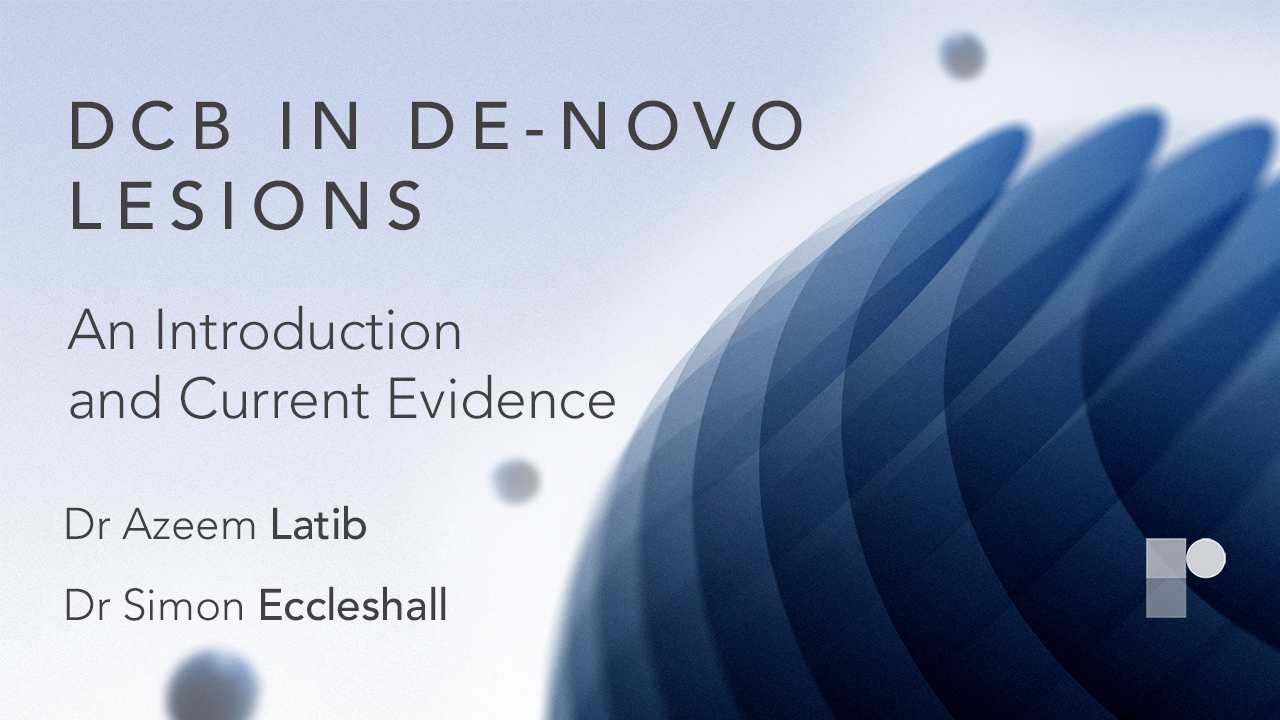 8m 25sPart 4 | Session 1 Episode 8: An Introduction and Current Evidence
8m 25sPart 4 | Session 1 Episode 8: An Introduction and Current Evidence -
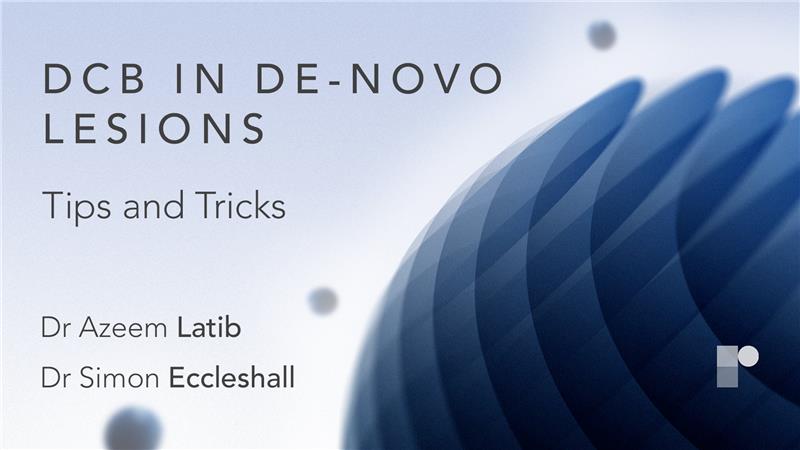 11m 40sPart 4 | Session 2 Episode 9: Tips and Tricks
11m 40sPart 4 | Session 2 Episode 9: Tips and Tricks -
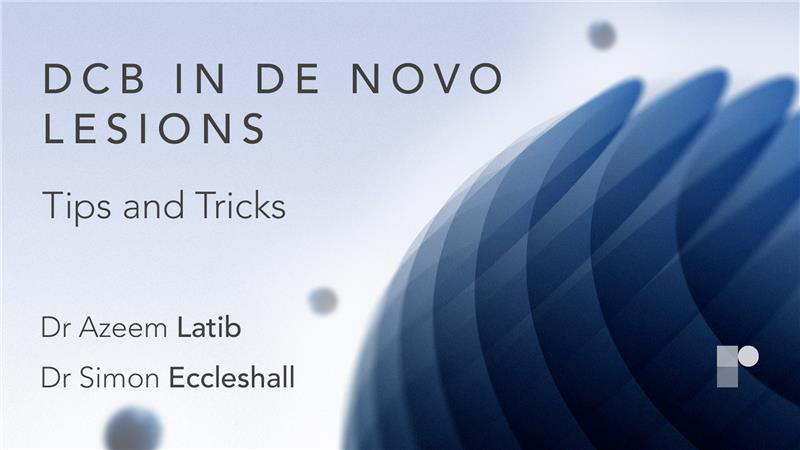 14m 7sPart 4 | Session 3 Episode 10: DCB in De Novo Lesions: Safety and Risks
14m 7sPart 4 | Session 3 Episode 10: DCB in De Novo Lesions: Safety and Risks
-
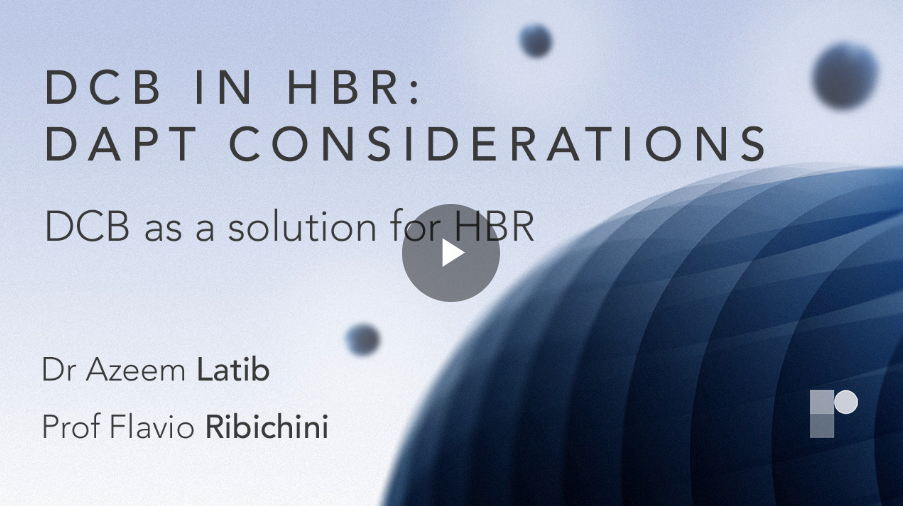 9m 1sPart 5 | Session 1 Episode 11: DCB as a Solution for HBR
9m 1sPart 5 | Session 1 Episode 11: DCB as a Solution for HBR -
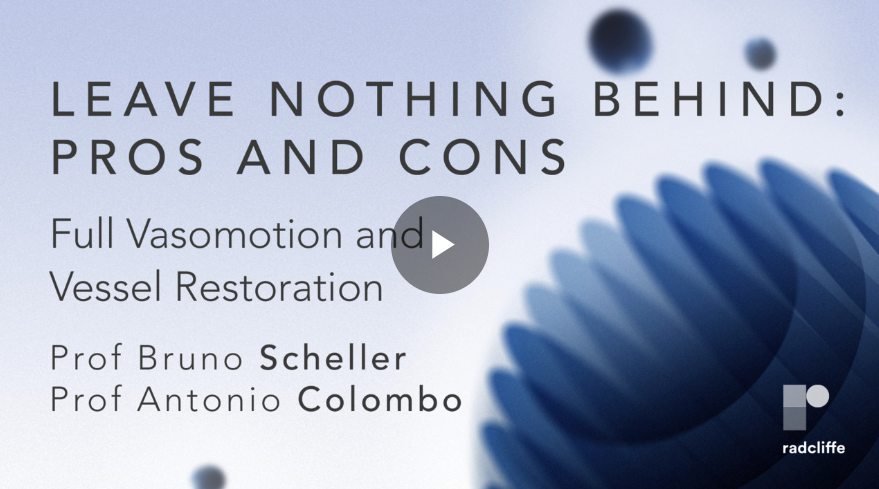 16m 23sPart 5 | Session 2 Episode 12: Full Vasomotion and Vessel Restoration: When To Go For It
16m 23sPart 5 | Session 2 Episode 12: Full Vasomotion and Vessel Restoration: When To Go For It
-
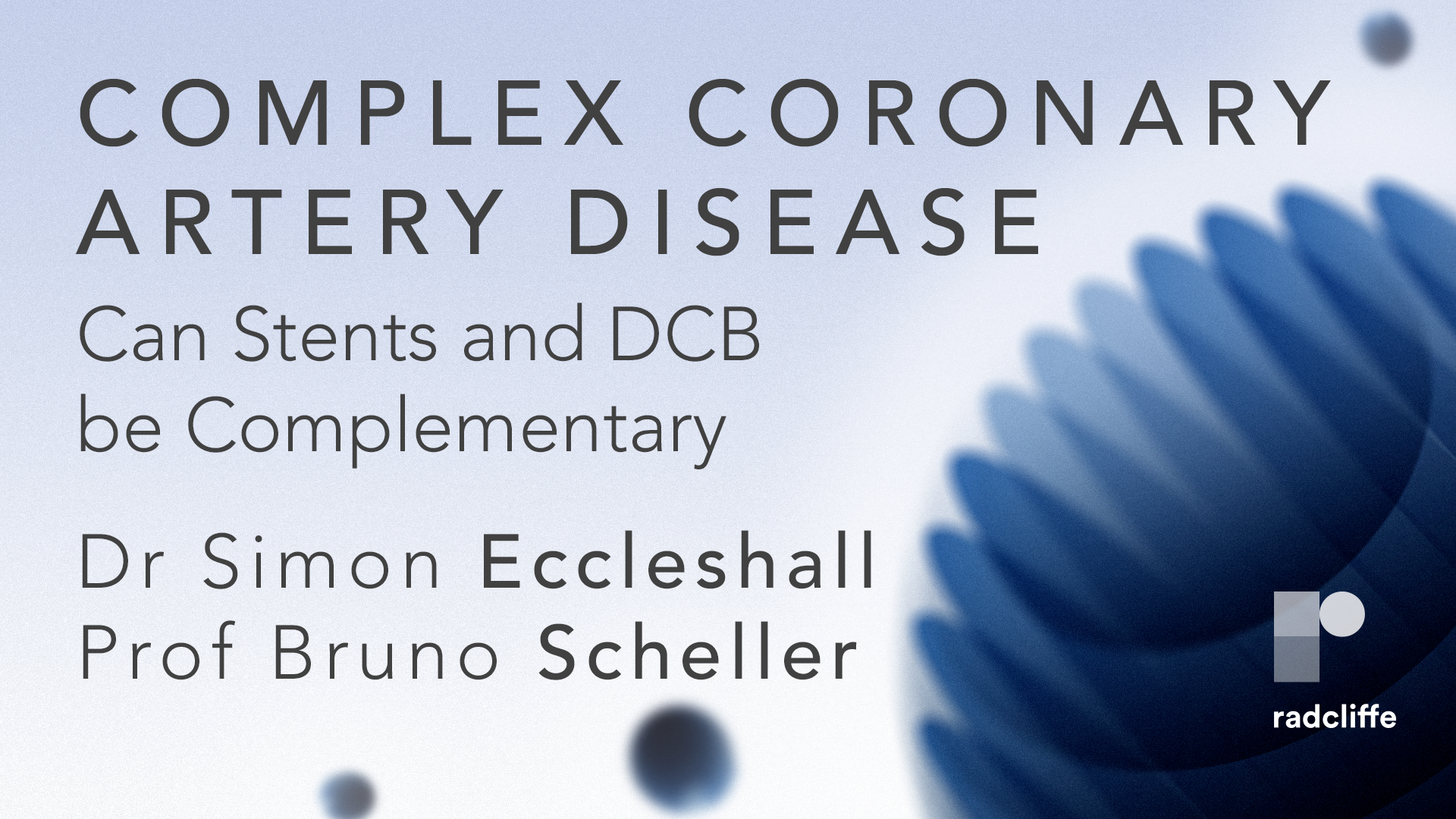 6m 13s
6m 13s -
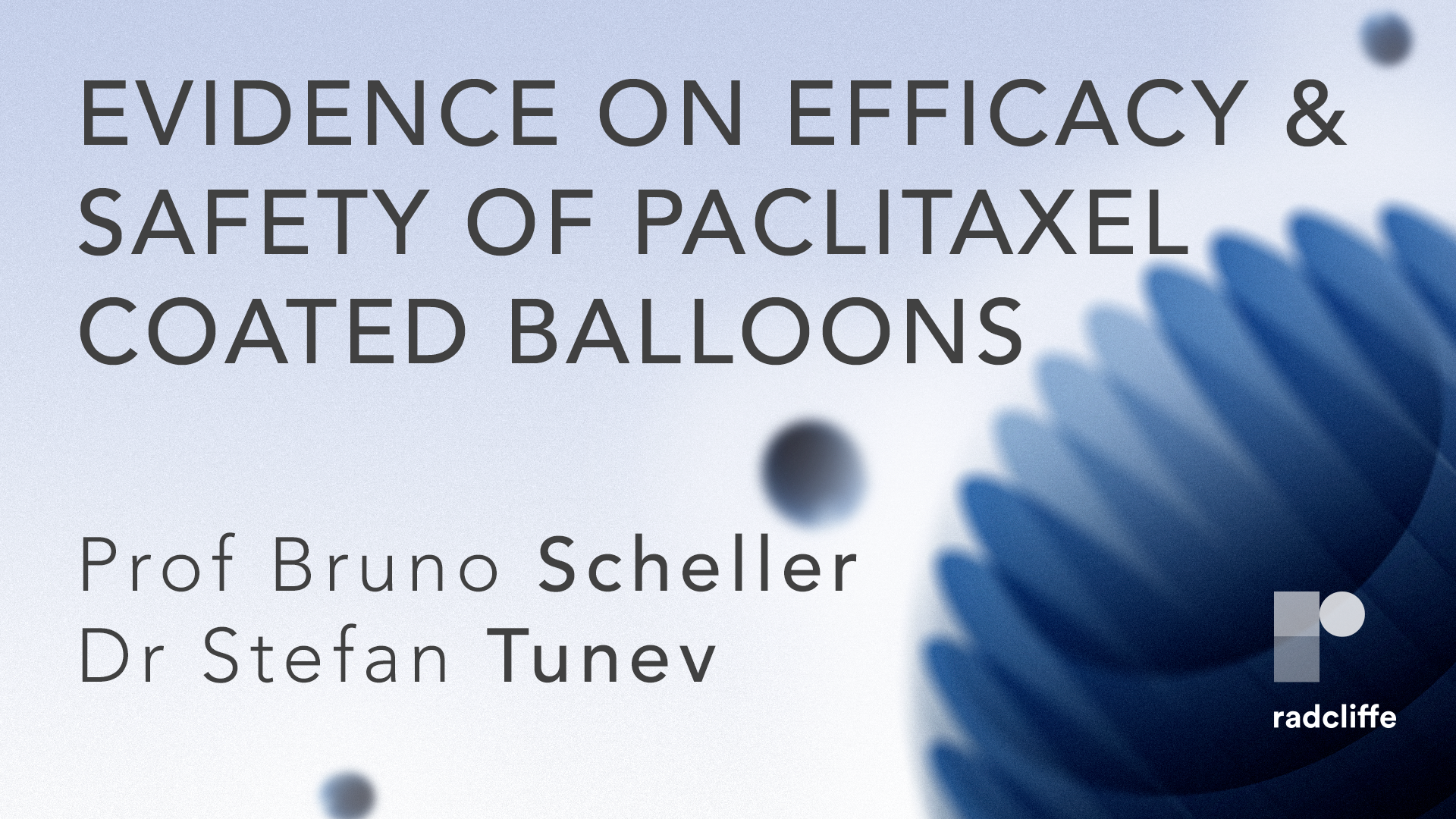 6m 29sPart 6 | Session 2 Episode 14: Evidence on Efficacy & Safety of Paclitaxel Coated Balloons
6m 29sPart 6 | Session 2 Episode 14: Evidence on Efficacy & Safety of Paclitaxel Coated Balloons
Overview
Learn more about the origins and science behind the DCB technology, the important clinical data supporting DCB use in the coronary arteries, existing and emerging treatment indications through videos, interviews and panel discussions with renowned faculty from highly ranked institutions.

Key Learning Objectives
- To discuss the origins and science behind the DCB technology, its current and potential areas of application in various clinical scenarios, and emphasize the benefits of DCB technology vs DES and Paclitaxel vs Limus.
- To emphasize the importance of vessel preparation, algorithms of optimal therapy delivery and criteria used for immediate results evaluation.
- To highlight the DCB Clinical Program, understanding the clinical benefits and safety of paclitaxel DCBs, and its relevance to your daily practice
Target Audience
- Interventional Cardiologists
- General Cardiologists
- Allied Healthcare Professionals
More from this programme
Part 1
Science of DCB
Part 2
DCB: Role of Predilatation and dissection assessment
Part 3
DCB in ISR and Guidelines
Part 4
Drug Coated Balloons in De Novo Lesions
For Part 4, episode 8 , we join Dr Latib and Dr Eccleshall to discuss the current evidence in the industry for Drug Coated Balloons in De Novo lesions, as well as DCB in small vessel disease and DCB in large vessels. In episode 9, discover the use of DCB in De Novo lesions with Dr Azeem Latib and Dr Simon Eccleshall, whilst also taking the decision on whether a lesion is a good one for DCB only. We also discuss the approach for sizing of the lesion for DCB and consider a check list for lesion preparation and procedure success assessment. In episode 10, we rejoin Dr Azeem Latib and Dr Simon Eccleshall for the final part within Drug Coated Balloons in De Novo Lesions, to discuss what lesions need a stent and what can be safely left without. In addition Dr Latib and Dr Eccleshall consider long term outcomes of DCB treatment of De Novo Lesions and the risk of acute vessel closure with only DCB used in PCI.
Part 5
DCB in HBR. DAPT considerations
In part 5 of this series, we discuss the approach for dual antiplatelet therapy after DCB in ISR as well as the approach for dual antiplatelet therapy after DCB in de novo lesions with Dr Azeem Latib and Prof Flavio Ribicini. But what other factors need to be taken into account when thinking of DAPT duration after DCB? Don’t miss this episode to find out. In our 12th and final episode of this section, we rejoin Prof Bruno Scheller and Prof Antonio Colombo to define vessel restoration and full vasomotion, whilst also discussing the role of different devices for vasomotion. Prof Scheller and Prof Colombo also examine the role of imaging and long term benefits between DCB and DES.
Part 6
Review of Paclitaxel-Coated Balloons
For Part 6, episode 13, we will explore the complementary use of drug-coated balloons (DCB) and drug-eluting stents (DES) in various cases. We will analyse the short and long-term angiographic results associated with these treatments and focus on the positive remodelling effect observed with paclitaxel DCB. Watch now to gain valuable insights into optimising treatment outcomes and enhancing patient care with DCB and DES. In episode 14, the final episode of the series, we focus on paclitaxel-coated balloons (DCB), where we will review their safety, efficacy and positive remodelling effect. Through an analysis of bench tests, preclinical studies, and clinical evidence, participants will gain valuable insights into the benefits of using paclitaxel-coated balloons in percutaneous coronary interventions. Enhance your knowledge and make informed decisions by watching this concise and informative session.
Faculty Biographies

Bruno Scheller
Dr Bruno Scheller studied medicine at the University of Saarland, Germany, from 1988 til 1994. Since 1994 he has been working as a physician at the clinic for internal medicine III,, University Hospital of Saarland, Homburg/Saar, Germany, where he is a consultant for internal medicine, cardiology, and intensive care. He is a full professor for Clinical and Experimental Interventional Cardiology at the Medical School of the University.

Stefan Tunev
Veterinary Pathologist, Fellow in Comparative Medicine, specializing in the field of medical device pathology

Darren Mylotte
Consultant Cardiologist
Dr Darren Mylotte graduated from RCSI Medical School in 2001, obtained membership of the Royal College of Physicians in Ireland in 2004, and completed the Irish Cardiology Specialist Training Scheme. He and was conferred with a Doctor of Medicine (MD) thesis in 2010 by the Royal College of Surgeons in Ireland and has also undertaken a PhD thesis. N the subject of Transcatheter Aortic Valve Implantation (TAVI) at the world renowned ThoraxCentre in Rotterdam, The Netherlands.





